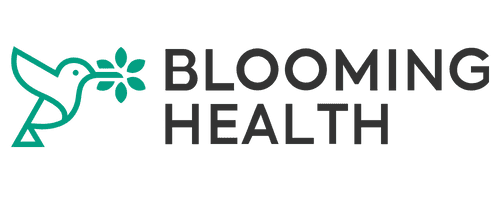May 9, 2025
At Blooming Day 2025, leaders from across the healthcare, community, and policy sectors gathered to dig into the transformative power of food as medicine. What emerged was a clear call to action: build sustainable, high-quality, and culturally relevant nutrition programs into our healthcare systems—and prove they work.
The panel was moderated by Dorella Walters, Chief Business Development Officer from God's Love We Deliver. Panelists included:
David Waters, CEO, Community Servings
Dexter Shurney, Chief Health Officer, Blue Zones
Mitchell Cornet, VP, Community Strategic Partnerships, Northwell Health
“Food is just as powerful in moving the needle on some of these conditions. Why wouldn’t we pay for it in the same way as a generic drug?”
That’s how Dr. Dexter Shurney, Chief Health Officer for Blue Zones, opened the session. His organization, which has worked to transform 100 communities across the U.S., looks at food through the lens of benefit design. “If it’s built into the structure, the protocols, the care… then it’s much more sustainable.”
He emphasized the need to move away from short-term grant-funded programs: “Not… something that you do on the side with philanthropy, or a grant, or even 1115. That’s fine. But… built into mainstream medicine.”
1115 Medicaid Waivers: Massachusetts Leads, New York Follows
David Waters, CEO of Community Servings, underscored how Massachusetts is ahead of the curve, “Massachusetts in this regard is 3 or 4 years ahead… Community Servings has 25 healthcare contracts, but 13 with ACOs through the 1115.”
And the impact is measurable. “Our collective research has shown, you know, a 16% cost savings net of the cost of the food.” Even more is coming, “Research that’s coming out the end of the summer [will evaluate] the 1st phase of the waiver.”
To back it up, Waters noted, “We have 3 large NIH R01 research studies going on the impact of the meals—RCT studies primarily.”
Partnerships with Payers: Proving ROI for Maternal Health
Mitchell from Northwell Health shared a payer-provider partnership showing how food as medicine can scale through strategic investment, “Our focus right now is on birthing parents, specifically women who… do not qualify for WIC… we're actually giving that mother… $150 per month for them to purchase healthy foods” through Northwell’s healthy food site on Instacart.
Why? Because the ROI is clear for payers, “They don’t want a NICU visit. They don’t want beyond the 3 days for vaginal delivery.”
Scaling with Rigor: Standards and Accreditation
As more states consider reimbursement, ensuring quality and consistency becomes paramount.
“If the intervention is watered down… you risk having bad research or disappointing results,” Waters warned. That’s why the Food is Medicine Coalition recently released national accreditation standards, ensuring:
Scratch cooking
Local food sourcing
HIPAA-compliant data practices
Consistent dietetic rigor
“If we accidentally do research on Jimmy Dean sausage patties… it’s not going to be food as medicine if it’s mediocre food.”
What’s Next: National Scale and Value-Based Food Programs
Across the board, speakers highlighted the need to center food around people—not just prescriptions.
“You can’t just do that from a place of power—like, ‘You will eat what I tell you to eat.’”
—David Waters
“We learned early that if we said, ‘This is a vegetarian chili,’ nobody wanted it… But if we just called it Marcella’s chili… they said, ‘Man, that was really good.’”
—Dr. Shurney
“We have… growing towers [in schools]... they actually grow leafy vegetables… eat them at lunch together.”
—Mitchell, Northwell Health
The speakers also discussed how food sovereignty, local economic vitality, and cultural respect must be built into every model—from Boston to rural farming communities. Waters emphasized:
“We said, we’ll take any area you can’t serve, but not compete where you can serve… So those small businesses… are still able to be in the system.”
Food is medicine. But more importantly, food is infrastructure—as vital as prescriptions, as powerful as policy, and as intimate as home-cooked meals.
As Blooming Day 2025 made clear: the future of health care isn’t just what’s in the chart. It’s what’s on the plate.
Blooming Health powers the delivery of nutrition programs by automating outreach, streamlining referrals, and supporting culturally tailored engagement.
See how we partner with the City of Yonkers Office for Aging (OFA) and Montgomery County OFA to streamline communication, improve service accessibility, and enhance nutrition programs for underserved populations.








